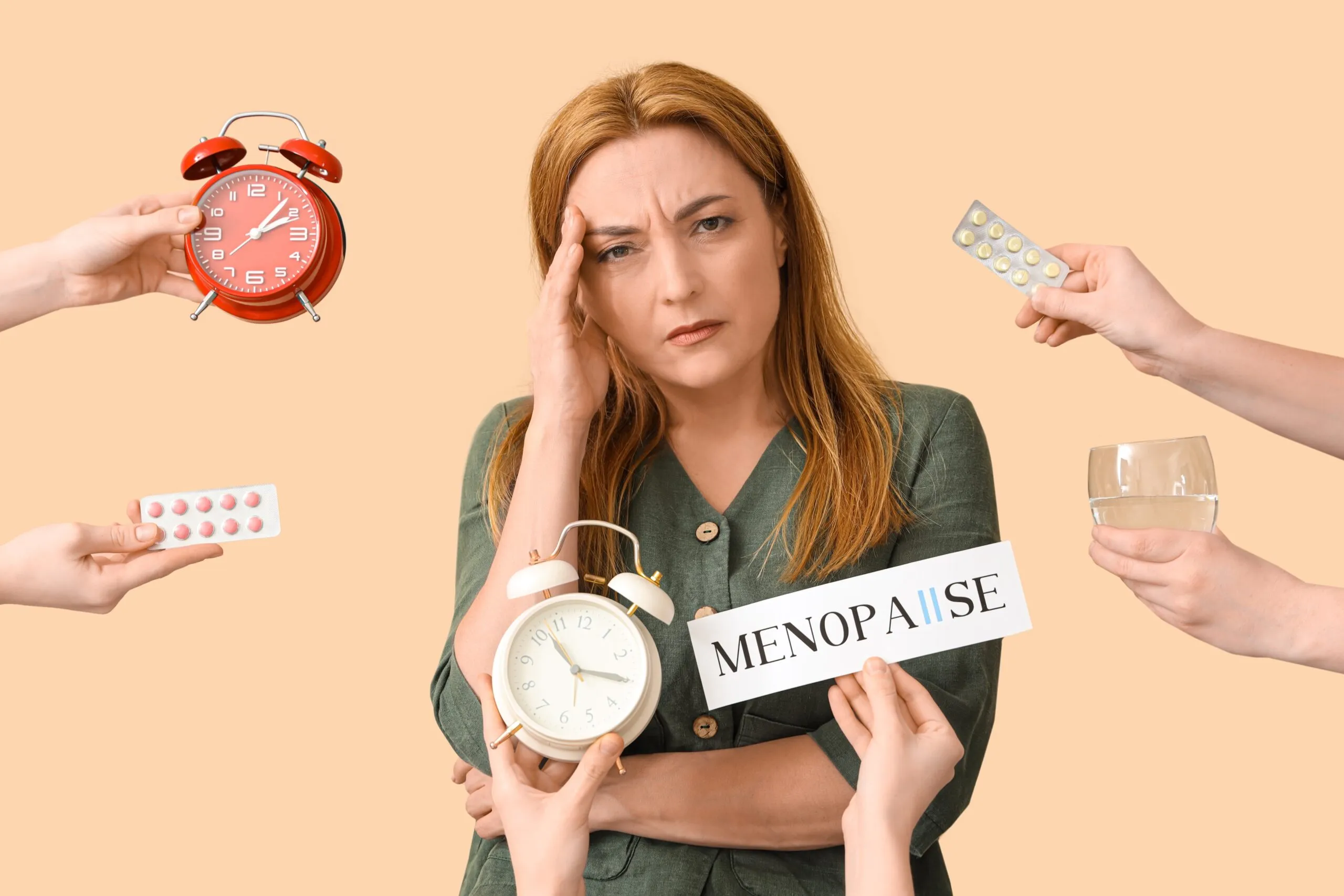When was the last time you felt anxious, moody, or emotionally drained without any clear reason? If you’ve ever wondered why your emotions fluctuate so much, the answer might lie in your hormones. Hormonal imbalance and mental health are deeply connected, influencing everything from your mood and energy levels to stress response and cognitive function. Whether it’s estrogen and mental health, progesterone and anxiety, or thyroid hormones and mental health, these biochemical messengers play a crucial role in how you feel daily. The good news? Understanding how hormones affect mood can help you take control of your emotional well-being.
The Hormone-Mood Connection
Your hormones act as messengers, regulating vital functions in your body, including your mental health. When they’re in balance, you feel energetic, focused, and emotionally stable. But when they fluctuate—due to your menstrual cycle, stress, lifestyle choices, or medical conditions—you might experience mood swings, anxiety, or even depression.
One of the biggest culprits is cortisol, the stress hormone. High cortisol and stress in women can lead to chronic anxiety, irritability, and even depression. Likewise, progesterone and anxiety are linked; low levels of this calming hormone may cause restlessness and mood disturbances.
Estrogen and mental health are closely connected, too. Estrogen supports serotonin, the “feel-good” neurotransmitter. When estrogen levels drop—such as before your period, during perimenopause, or after childbirth—it can lead to hormonal changes and brain fog, low mood, and even postpartum depression and hormones playing havoc with your emotions.
Life Stages and Hormonal Shifts
Throughout a woman’s life, hormonal changes affect mental well-being in unique ways:
- Menstrual cycle and mood swings – Many women experience PMS (premenstrual syndrome), where shifting estrogen and progesterone levels cause irritability, sadness, or anxiety.

- PCOS and mental health – Polycystic ovary syndrome (PCOS) is often linked to hormonal imbalances that increase the risk of depression and anxiety.
- Perimenopause and mental health – The years leading up to menopause bring unpredictable hormone fluctuations, triggering mood swings, anxiety, and even panic attacks.
- Menopause and anxiety – A decline in estrogen during menopause can lead to depression, irritability, and cognitive difficulties.
- Birth control and mood changes – Some women experience emotional shifts when using hormonal contraceptives, as they alter natural hormone levels.
How to Balance Hormones Naturally
If you’re experiencing mood swings, anxiety, or brain fog, there are natural ways to support hormone balance and improve mental well-being.
- Focus on Gut Health – Your gut plays a significant role in hormone regulation. An unhealthy gut can disrupt hormonal balance, making you feel sluggish and moody. Eating fiber-rich foods and fermented foods like yogurt can help support gut health and hormone balance.
- Eat a Nutrient-Dense Diet – Certain foods help regulate hormones and mood. Omega-3 fatty acids, found in fish and flaxseeds, help combat inflammation, while magnesium-rich foods like leafy greens aid in stress reduction.
- Manage Stress Effectively – Chronic stress wreaks havoc on your hormones, leading to an overproduction of cortisol. Practicing meditation, yoga, or deep breathing can be powerful tools for stress management for hormonal health.
- Exercise Regularly – Physical activity helps balance hormones by reducing cortisol and boosting endorphins. Even moderate activities like walking or stretching can make a difference.
- Get Enough Sleep – Lack of sleep disrupts your hormone production, affecting everything from estrogen to cortisol levels. Prioritizing good sleep hygiene can significantly improve your mood and energy levels.
Best Supplements for Hormone Balance
Certain supplements can support hormonal equilibrium and mental well-being:
- Vitamin D – Supports mood and hormone regulation.
- Magnesium – Helps with stress relief and anxiety reduction.
- Adaptogens (Ashwagandha, Rhodiola) – Reduce stress and support adrenal health.
- B Vitamins – Essential for energy production and mood stabilization.
- Omega-3 Fatty Acids – Help regulate inflammation and support brain health.

Small Changes, Big Impact
While hormonal fluctuations are a natural part of life, they don’t have to control your mental well-being. With the right lifestyle adjustments, stress management techniques, and dietary choices, you can support your hormones and regain emotional stability. Pay attention to how your body responds to different triggers, and don’t hesitate to seek medical advice if mood changes become overwhelming. Understanding how hormones affect mood is the first step in taking charge of your health and happiness.
For more related articles, Click here



